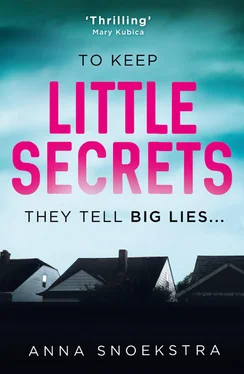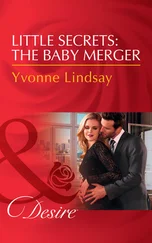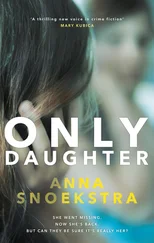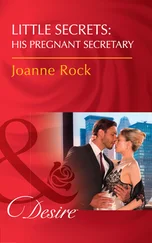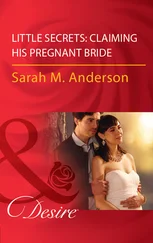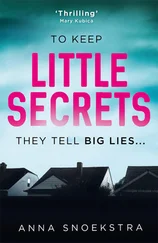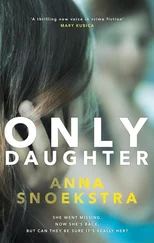1 ...6 7 8 10 11 12 ...15 She pulled her curtains shut and put on the fan. She could smell the ripe stink of her own sweat and it made her even more frustrated. She had been totally right to call the police, and now her mum was angry with her.
Again, the memory of the last time she’d seen Rob surfaced. She’d come out of her bedroom, where she basically lived these days, and her mother and Rob had been sitting in the living room. They’d asked her to sit down. Rob had actually said the words our home, when he’d told her it was time for her to get her own place. Rose was no longer part of the “our,” even though she’d lived in the house for seventeen years longer than he had. Her mother had said nothing, but she’d nodded along with him and hadn’t looked Rose in the eye.
The fan whirred, blowing cold air onto her sweaty neck and making her hair flutter around her face. The pillow felt soft against her cheek. She closed her eyes, relishing the silence and the dark, trying to let herself dissolve into it. To forget her life, just for a moment. But she couldn’t. Every time her mind felt clear, she’d see that porcelain face. Or Will’s expression when he’d caught her crying. Or, worst of all, she’d see herself, staking a claim to some earth near the fossickers. She opened her eyes. It was too stuffy for this. Sitting up, she pulled the window ajar, letting some air in. Fuck it. Just because her life was depressing didn’t mean she had to be. She was going to figure this out. Besides, it wasn’t like she even had a choice. She had to do something.
She slipped on some sandals and put her phone and notebook in her pocket. She left the house, banging the screen door shut behind her. The air was heavy with humidity. Listening to the slap of her shoes against the road, she walked briskly down the street. The tiredness lifted off her like a blanket. It was good to get outside. The morning was getting hot, but at least there was movement in the air. Sitting at home in the house where she grew up, but where she no longer felt welcome, was hardly comforting. From a distance, she heard the echoes of children squealing and laughing. They must have been stragglers, late to school, or perhaps playing truant. She and Mia used to do that sometimes, she remembered, back when there was a high school in Colmstock. Things were so different then, it was hard to believe it was the same place. They’d had a whole group of friends. All of them, except for Rose, had their futures mapped out perfectly. They’d graduate high school and then go to work at Auster’s. It wasn’t a bad job, and the pay was good. High school had felt like their last chance for freedom.
Walking past the football oval, Rose remembered what it used to look like. It had been perfectly green, and one night, they’d done doughnuts with one of their fathers’ pickup trucks. Rose and Mia had lost touch with their friends very quickly after their final year. Two of them had married each other and were on to their third kid, Mia’s boyfriend had killed himself, and one of them, Lucie, had moved out of town for three years only to come back to Colmstock pregnant and alone. Rose had tried calling her, but she’d never called her back and so that was that. Looking out over the field, where the dead yellow grass was coming up in clumps, it seemed incredible that it could be the same place. The stands were covered in graffiti, and the seats were broken. But she could almost still feel the wind in her hair, still hear Mia’s and Lucie’s squeals of delight echoing in her ears.
Colmstock had once thrived as a farming area, but in World War I, more than two-thirds of the young men who left didn’t come back. The town had almost been deserted then, and Rose wished it had. It would have saved them all a lot of disappointment. But it hadn’t, because someone had stumbled on deposits of oil shale in the late 1930s. The rest of the country was still recovering from the Depression, so people flocked to the middle-of-nowhere town to work in the mines. The car factory was built around then, and Colmstock had become a very wealthy town. You could tell which buildings were from that period: grand white facades that were now cracked and weathered.
The mine closed in the eighties. Something to do with cheaper alternatives being discovered, but Rose couldn’t quite remember what they were. The mine entrance was still there. A wide black mouth leading into oblivion. It wasn’t too far from the lake near Rose’s house. When she and Mia had been bored kids they used to sneak under the fence around it and dare each other to jump inside.
The council building was one of the big white buildings, but more important, it was one of the few places in town with air-conditioning. An old woman with a hunch and thick Coke-bottle glasses was sitting on a bench out the front; she smiled hopefully at Rose, who nodded in return. This woman was often hanging around, and if you weren’t quick you’d get stuck listening to her rattle on all day about her cat. Rose stepped inside, and her skin prickled cold. It was a lovely feeling. She stood in front of the notice board, her eyes closed, feeling her blood cool.
This was where the office for the local newspaper used to be. The Colmstock Echo—Rose had done work experience there when she was in high school. Everything about it had felt so right. Going out and finding the real story. The smell of ink on printing day. She’d started working there during the day after she’d been rejected in her university scholarship applications. It had only been for six months, and she’d been at Eamon’s at nighttime, but Rose had been okay. She’d almost been happy. It hadn’t been long until they could no longer afford to pay her, but she’d stayed on anyway. Most of the other staff had left, so Rose had become the deputy editor. Eventually the funding was cut completely. That was when Rose had done the stupid thing. The dumb, reckless thing that had really sealed the deal on her crappy life. The idea of the newspaper closing, of her life just being about Eamon’s, killed her. So, big ideas in her head, she’d got a small loan from the bank. She had been sure if they could just hang on until they had some advertisers, she could save the Echo. It hadn’t made any difference; the newspaper had barely lasted another month. Rose’s loan had grown steadily, and now she wasn’t even managing to pay off the interest each month.
“Rose?”
Steve Cunningham came to stand next to her.
“I thought that was you,” he said, smiling. “How are you?”
“Fine.” She felt caught out; she didn’t want to have to explain to him that she had nowhere to live. He looked up at the board, but didn’t ask her about it.
“It’s quiet around here,” she said, and it was true. They were the only people standing in the corridor.
He shrugged. “I’m used to it.”
Steve was looking terrible; he was pale, which was making the shadows under his eyes appear deep and purple, but his smile was real. She had always suspected Steve might admire her, not in the ogling bad-joke way that some of the other punters did, but like he actually thought there might be more to her than her arse.
With a swish from the doorway, his smile fell instantly from his face. She followed his gaze. Mr. Riley was opening the building’s front door for his wife, his hand on her lower back as he steered her through it. Rose looked away quickly. Since the fire, the Rileys had become almost famous in town, triggering silence and averted eyes wherever they went. Their grief followed the couple like a cape.
“Hi,” Steve said, walking toward them, hand outstretched. “Good to see you both.”
He escorted them past Rose and into one of the rooms beyond the staircase. Rose watched them go, trying to imagine how it would feel to have both your child and your business disappear all at once.
Читать дальше
